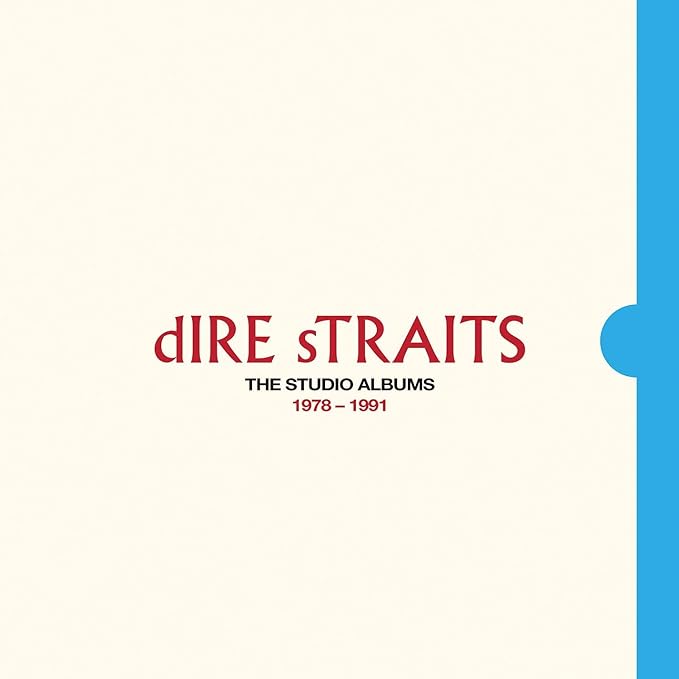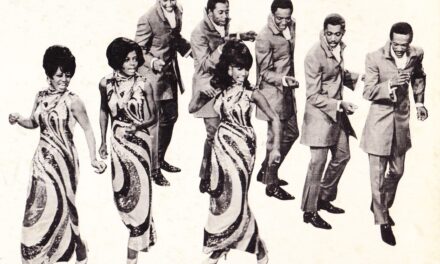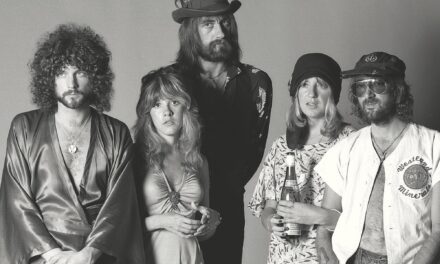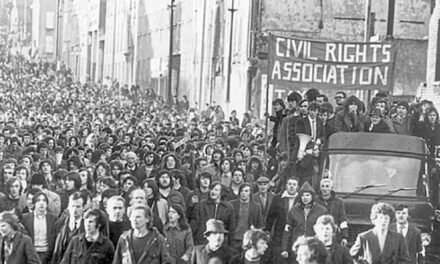1988 proved a pivotal transitional period for the United Kingdom socially, politically and culturally. With Margaret Thatcher’s Conservative government at the height of its power after a third election victory, the seeds of eventual change were nevertheless stirring across British society. As the ‘greed is good’ excesses of the 1980s peaked, a shifting mood pointed towards the emergence of a more progressive, multi-cultural nation amidst lingering divisions.
Politically, Thatcherism was ascendant, with the Prime Minister’s programme of economic liberalisation and conservative social policies largely unchallenged, despite deepening north-south divides. However Thatcher faced growing opposition on issues like the controversial ‘Section 28’ law that prohibited the ‘promotion’ of homosexuality. Internationally, Britain maintained a strong presence under Thatcher’s staunch leadership.
Culturally, the rave and acid house explosion, fuelled by the new drug ecstasy, defined a rush of youth counterculture. The ‘Second Summer of Love’ saw underground dance movements reject materialism in favour of togetherness and psychedelia harking back to the 1960s. The rise of bands like The Stone Roses and Happy Mondays pointed to the coming ‘Madchester’ scene.
Beyond music, British cinema began addressing contemporary social issues after a heavily escapist decade. Films like Rita, Sue and Bob Too reflected rising inequality, while The Unbearable Lightness of Being typified artier fare. On television, Blackadder Goes Forth provided a hilarious yet poignant take on World War I.
In sports, the lifting of England’s post-Heysel ban saw the national team return to major tournaments after a dark period. A young Lewis Hamilton began his march to Formula One glory by winning junior karting titles. But the Hillsborough disaster, which caused nearly 100 deaths, cast a pall over football.
With change simmering under the surface, 1988 ultimately represented the turning point when Britain’s cultural mood began shifting away from the polarised Thatcher years towards the ‘Cool Britannia’ optimism of the 1990s. But Thatcherism still reigned supreme for the moment as the old battled the emerging new.

The Prodigy Formed, Pioneering Rave/Electronica
In 1988, amidst the feverish rave explosion sweeping Britain, an unassuming group called The Prodigy formed in Braintree, Essex to make their own seismic impact on youth culture. Blending rave’s dystopian synth energy with punk rock aggression, The Prodigy pioneered an abrasive yet uplifting new style called big beat electronica.
Masterminded by producer Liam Howlett, The Prodigy channeled the raw DIY ethos of punk into electronic music. Where other rave acts emphasized euphoria, Howlett injected rage and distortion into his keyboard hooks and breakbeats. Following rave’s outlaw party vibe, early Prodigy gigs were chaotic happenings, with Howlett mixing live sequences as dancers thrashed around violently.
Songs like their 1990 debut “Charly” added a rowdy edge to rave’s escapist bliss, foreshadowing electronica’s harder path. As clubs splintered into subcultures, big beat gave misfits their own cathartic soundtrack. The Prodigy’s 1991 track “Everybody in the Place” kicked off a blazing sonic riot of noisy synth stabs and distorted vocals shouting rebellious lyrics.
Howlett produced dizzying tracks loaded with revved-up breakbeats, dystopian textures, and samples spanning hip hop, rock and funk. Maxim Reality’s punky, aggressive vocals completed The Prodigy’s distinctive abrasive style. While initially underground, their songs blew up into wider public consciousness by 1992’s acclaimed Experience album.
Now stadium headliners, The Prodigy’s 1997 masterpiece The Fat of the Land took big beat into the stratosphere. Hit singles like “Firestarter” and “Breathe” were explosive anthems that merged rock energy with intense electronics. The Prodigy brought electronic music’s underground power to the mainstream.
From raucous raves to global tours, The Prodigy’s pioneering big beat gave voice to misfits, rebels, and outcasts seeking release. Their caustic synths and punk spirit resonated with disaffected youth while opening minds to electronic music’s cathartic force. Emerging in 1988, The Prodigy revolutionised youth culture for generations.

George Michael’s Faith Won Brit Awards Album of the Year
In 1988, former teen idol George Michael stepped out in spectacular fashion as an artist in his own right when his smash hit debut solo album Faith won Album of the Year at the Brit Awards. The victory capped Michael’s journey from his bubblegum pop Wham! days into a mature, credible artist.
Released in 1987, Faith showcased Michael’s evolution with its stylish dance-pop production and vulnerable songwriting on romantic yearning and identity. Songs like the steamy title track and uplifting “Father Figure” made Michael a global sensation, with Faith topping charts worldwide for much of 1988.
But Michael faced skepticism in the UK over whether he could transition into a serious artist post-Wham! The Brit Awards that February provided the perfect stage for validation, with Michael leading nominations along with remnant peers like five-time nominee Rick Astley.
Performing a burning rendition of “Father Figure,” Michael left no doubt about his solo power. When Faith triumphed for Album of the Year, it represented Michael’s emphatic arrival as an artist in control of his identity and vision. His heartfelt acceptance speech paid tribute to the risks artists must take to grow.
Beyond the Brits, Faith achieved monumental international success, spawning six top 5 Billboard Hot 100 hits. Michael’s maturation as a songwriter earned widespread critical acclaim as he explored intimate themes of romance, longing, sexuality, and soul-searching. His vocal agility and, on songs like the bluesy “One More Try,” astonished listeners.
From synth-driven uptempo numbers to sensual ballads, Faith merged Michael’s pop roots with sophisticated new influences like soul and gospel. His provocative dance moves and image in the title track’s video became iconic. In achieving global fame on his terms, Faith remains a seminal work of intimate yet catchy pop and a courageous artistic milestone.
Commercially and creatively, George Michael’s victory for Faith at the 1988 Brit Awards marked his explosive arrival as a solo superstar. It fully silenced skepticism over his post-Wham! potential while underscoring his determination to grow. Faith remains not just a pop triumph but a bold proclamation of creative autonomy from an icon who kept evolving in the years to come.
Celebrate 40 years of compilations with NOW That’s What I Call 40 Years – 43 tracks across 3 LPs - honouring the legacy with a selection of the best from 40 years of NOW. Take the journey from the first edition back in 1983, right up to the present day. NOW That’s What I Call 40 Years – celebrating NOW’s legacy with Massive Pop Hits from the past 40 years.
Now That’s What I Call Music! Debuted
In November 1988, the release of a simple but revolutionary new compilation album changed the music landscape in the UK. Now That’s What I Call Music! debuted to provide pop fans an effortless playlist of the year’s biggest hits across genres on one record. This innovative concept launched the most popular and enduring various artists series in British music history.
Envisioned by Virgin Records and EMI as the definitive musical snapshot of 1988, the first Now album compiled megahits from acts like Kylie Minogue, Rick Astley, Michael Jackson, George Michael and The Hollies. Its accessible mix of pop, rock, R&B and soul reflected shifting, diversifying tastes. Crucially, the tracks were unmixed to replicate radio-style listening.
Though seemingly basic, providing smash hits on one easy album proved an unprecedented game-changer in the pre-streaming age. Now That’s What I Call Music! debuted at #1 on the UK charts. Ultimately selling over 1.2 million copies, it became Britain’s highest selling Various Artists compilation ever at the time.
Now quickly evolved into a national institution and essential pop culture time capsule. New instalments released several times per year, always topping the charts. For British youth, anticipation of the latest Now album became a pop ritual providing the soundtrack to memories and milestones.
Now albums likewise mirrored evolving musical trends and tastes into the 1990s and beyond. instalments incorporated fresh genres like Britpop, UK garage and grime that defined eras. Yet pop and rock staples persisted in parallel with emerging acts.
The series also launched sister editions worldwide and spinoff brands, becoming pop’s most prolific legacy. Today numbering over 100 UK volumes, Now That’s What I Call Music! remains a national treasure that, in 1988, forever changed how music could be compiled and consumed. Its formula testifies to the unifying power of hit songs across the generations.

Enya’s Breakthrough with Watermark
1988 saw the meteoric rise of Irish singer-songwriter Enya and her ethereal, layered vocal stylings with the release of her breakthrough album Watermark. Propelled by its standout hit single “Orinoco Flow,” the album launched Enya from relative obscurity to international stardom.
Born Eithne Ní Bhraonáin in County Donegal, Enya had previously sung with family band Clannad. But her solo career took off when she collaborated with producer Nicky Ryan and lyricist Roma Ryan on Watermark for their newly formed record label, Geffen Records.
Watermark demonstrated Enya’s unique “Celtic New Age” sound – multilayered keyboards, synthesizers and her wordless, choral vocals sung in Latin, Irish or English. The album exuded a mystical, melancholy and romantic spirit, enveloping listeners in its wave-like sonic textures.
The hypnotic first single “Orinoco Flow” became a global sensation, hitting No. 1 in the UK and introducing Enya’s one-of-a-kind style. Its video, filmed at Ailsa Craig island off Scotland, reinforced her ethereal image that captivated mainstream pop audiences.
Propelled by the smash success of “Orinoco Flow,” Watermark topped charts worldwide for months through late 1988. Enya performed to rapturous crowds on her first arena tours as audiences were spellbound by her mystical aura.
Watermark marked the arrival of Enya’s signature sound that would inspire the burgeoning new age movement. Fusing modern studio techniques with Celtic influences, Enya pioneered a new direction in pop. Her widespread success shattered the myth that such esoteric music couldn’t find commercial success.
By the end of 1988, Enya was one of the world’s biggest stars. Yet she retained an air of mystery and artistic integrity, shunning celebrity culture while creating her meticulously crafted albums in remote Irish castles with the Ryans. For both her artistic boldness and global popularity, Enya’s Watermark stands as a landmark pop triumph of 1988.

Entertainment
Dangerous Liaisons Brought Seduction and Scandal to Screens
In 1988, British audiences were captivated by the sumptuous big-screen adaptation of the controversial 1782 French novel Dangerous Liaisons. With lavish costumes and sexual gamesmanship among aristocrats, the drama was a cinematic sensation that year for its portrayal of seduction and scandal.
Directed by Stephen Frears, Dangerous Liaisons starred Glenn Close as the calculating Marquise de Merteuil and John Malkovich as the notorious Vicomte de Valmont, former lovers who weaponise sex to socially destroy others. Set in baroque pre-revolutionary France, the story exposes the decadence and cruelty of the nobility through their perverse wager to seduce the virtuous Madame de Tourvel and Cécile de Volanges.
With its opulent set design and costuming, Dangerous Liaisons created a visually lush world that seduced audiences even as it revealed the dark hearts of its protagonists. Close and Malkovich excelled with their icy, impeccable portrayals and smouldering chemistry in the leads.
The cunning Marquise and manipulative Vicomte’s aristocratic excesses and games of sexual conquest provided engrossing, morally provocative drama. Their machinations build through overlapping love triangles and scandals amidst a repressive society, spiraling ultimately into tragedy.
Dangerous Liaisons drew controversy for its frank depiction of sex and hedonism, earning an R rating. But its unflinching boldness made it a conversation starter in 1988, given its themes of corruption lurking beneath respectable facades. Audiences were mesmerised by Close and Malkovich’s magnetism as aristocrats masking villainy in refinement.
A major box office and critical hit, Dangerous Liaisons won three Academy Awards including Best Adapted Screenplay. Its extravagant vision of pre-Revolution France captured through the lens of erotic manipulation was a cinematic achievement that made the film iconic.
Thirty years later, Dangerous Liaisons remains renowned for its sumptuous costume drama meets psychological thriller pacing and magnetic antihero performances from Close and Malkovich. For bringing seduction and scandal to theatres in lavish, thought-provoking fashion, Dangerous Liaisons proved one of 1988’s most unforgettable films.
The first ever episode of Only Fools and Horses was broadcast in September 1981. Over seven series and fifteen specials, Del, Rodders and the gang have given us so many precious moments – the chandelier incident, the yuppy bar fall, the Batman and Robin chase – but it is the characters, the storylines and the great scripts that have earned Only Fools and Horses the enduring love of the public.
INCLUDES ALL 7 SERIES AND 15 CHRISTMAS SPECIALS ON 19 DISCS
Only Fools and Horses Christmas Special Drew Over 20 Million Viewers
The centrepiece of Britain’s 1988 Christmas television lineup was the seasonal special of beloved sitcom Only Fools and Horses, titled ‘Dates’. Airing on Christmas Day, the episode drew a record-shattering audience of 21.3 million viewers, cementing the show’s status as a national treasure.
Part of what made the Only Fools and Horses special event television was its familiarity. By its seventh series, the comical misadventures of the Trotter family in working-class Peckham had become custom holiday viewing. Episodes involving holiday high jinks were guaranteed hilarity for the whole family.
Centred around wheeler-dealer brothers Del and Rodney Trotter, played masterfully by David Jason and Nicholas Lyndhurst, Only Fools had won over the UK with its heartwarming humour and propensity for sentimental Christmas storylines. The show balanced slapstick Peckham antics with emotional family ties.
‘Dates’ continued this tradition, seeing Del boy scramble to set up Rodney on a blind date on Christmas Eve, with chaos ensuing. Touching moments came as Del ensured lonely senior citizen Alice got an invite for Christmas dinner.
Viewers adored the cast’s easy chemistry and skilful walking of the comedy tightrope. The 1988 special encapsulated the show’s prime as both comic goldmine and part of British holiday nostalgia. Even today, it remains the 4th most watched UK program ever.
For the BBC, the ratings phenomenon demonstrated Only Fools’ crossover appeal and status as event programming. It confirmed that the misadventures of the Trotters had become interwoven into the fabric of British culture. The figures even beat Coronation Street.
Nearly 25 years later, with its heartwarming spirit and uproarious humor, the Only Fools and Horses 1988 Christmas special cemented its legacy as a key national tradition, bringing families together through the antics of television’s most iconic sitcom brothers. Del and Rodney defined the season.

Dennis Potter’s Acclaimed Drama The Singing Detective Aired on BBC
One of the most inventive and acclaimed dramas of 1988 arrived that fall when the BBC aired Dennis Potter’s masterwork The Singing Detective. A six-episode miniseries starring Michael Gambon, it enthralled audiences with its bold lyrical interweaving of imagination, memory and reality.
Centring on a mystery writer named Philip Marlow hospitalised with a severe skin condition, The Singing Detective employs nested storylines and fantasies to bridge Marlow’s bedridden present with his troubled childhood past and his hardboiled pulp detective alter ego. These rich parallel narratives are punctuated with elaborate 1940s-style song and dance numbers.
Gambon earned raves for his performance as the tormented Marlow, who conjures the singing detective fantasy world to dissociate from his pain. Potter’s intricately structured screenplay explores deep psychological trauma and longing through these nested dream states.
With its ambitious mixing of drama and lip-synced musical numbers, The Singing Detective brought stunning originality to the BBC. Potter’s lyrical dialogue and literary motifs dazzled critics. He skilfully melded solemnity with campy escapism to ground Marlow’s rich imagination in gritty reality.
Controversially at the time, The Singing Detective also aired profanity and adult scenes unprecedented on the BBC. But audiences were hooked by Potter’s visionary storytelling style. The miniseries was a sensation, cementing Potter’s reputation as one of Britain’s greatest television writers.
The show later aired to similar acclaim overseas. With its daring creativity and powerful psychodrama, The Singing Detective inspired shows for years after. Potter proved the artistic bounds of television could match literature.
Three decades later, Potter’s small screen tour de force still astounds for its structural complexity, tonal elasticity, and lyrical dialogue. The Singing Detective in 1988 showcased British television’s dramatic potential at its creative peak.
A career spanning boxed set “The Studio Albums 1978-1991.”
Formed in 1977, Dire Straits, led by Mark Knopfler, were one of the iconic groups of the late 20th Century. THE STUDIO ALBUMS 1978 – 1991 brings together all six of the band’s studio albums. - DIRE STRAITS (1978)- COMMUNIQUE (1979)- MAKING MOVIES (1980)- LOVE OVER GOLD (1982)- BROTHERS IN ARMS (1985)- ON EVERY STREET (1991) All albums have been re-mastered, with all original artwork restored, the six albums are packed in a handsome box set slipcase.
Culture
Section 28 Banned “Promotion of Homosexuality” by Authorities
Amidst the growing openness of the late 1980s, one notorious piece of legislation promoted institutionalised prejudice against the LGB community. Section 28 of the Local Government Act officially banned the ‘promotion’ of homosexuality by local UK authorities when it came into force in 1988.
Introduced by the Thatcher government and backed mainly by Conservatives, the vaguely defined Section 28 essentially prohibited councils from publishing material, funding educational initiatives, or otherwise bringing attention to gay and lesbian relationships, diversity or sexuality.
Though not directly outlawing homosexuality itself, the clause legalised the suppression of LGB visibility and acceptance in government. Authorities were barred from funding books, plays, leaflets or teaching that normalised same-sex relationships in any way.
Section 28 provoked outrage from LGB advocates and allies. They condemned it as enshrining homophobic stigma in law, equating acknowledgment of gay identity with moral corruption of youth. Peaceful protests highlighted how the legislation fuelled anti-gay discrimination by design.
While some Conservatives saw reversing supposed homosexual propaganda as moral defence, others like radical feminist Andrea Dworkin criticised Section 28’s tacit approval of violence against sexual minorities. Rights groups lobbied fiercely for the law’s repeal.
Section 28 created a culture of fear surrounding LGBTQ+ topics, forcing teachers and local councils to self-censor or risk prosecution. Even neutral acknowledgment or counselling of gay students became legally dubious despite no ‘promotion’.
With social attitudes liberalising into the 1990s, Section 28 grew controversial even within Conservative ranks. Though some defence of ‘family values’ remained, shifting public views made the law seem outdated and cruel. It was finally repealed in Scotland in 2000 and in the rest of the UK in 2003.
Section 28 caused incalculable harm in sanctioning anti-LGB prejudice during some of modern Britain’s most pivotal years. Though gone, its dark legacy still echoes as a warning of how easily hard-won rights can erode when fear and misinformation corrupt society and law.
When Margaret Thatcher became prime minister in 1979 she promised to bring harmony where once there had been discord. But Britain entered the 1980s bitterly divided over its future. At stake were the souls of the great population boom of the 1960s. Would they buy into the free-market, patriotic agenda of Thatcherism? Or the anti-racist, anti-sexist liberalism of the new left?
From the miners’ strike, the Falklands War and the spectre of AIDS, to Yes, Minister, championship snooker and Boy George, Rejoice! Rejoice! steps back in time to relive the decade when the Iron Lady sought to remake Britain. What it discovers is a thoroughly foreign country.
Salman Rushdie’s The Satanic Verses Sparked Protests and Book Burnings
The 1988 publication of Salman Rushdie’s novel The Satanic Verses sparked immediate outrage and violent protests from some Muslims worldwide, leading to public book burnings and Western cultural facilities being attacked. Amidst mounting tension, Iran’s Ayatollah Khomeini issued a fatwa calling for Rushdie’s execution.
A complex magical realist story partly set in an imaginary dream sequence, The Satanic Verses outraged some conservative Muslims for its apparent mocking portrayal of the Prophet Muhammad and other Quranic elements. Its fantastical remixing of religious imagery and teachings was called blasphemous.
Mass demonstrations against the book unfolded in the UK and Pakistan within weeks, with copies being burned publicly. Iran halted trade with Britain in protest. Violence related to the novel also erupted, with a translator murdered and others attacked.
The escalating fervour highlighted a deep cultural divide, as advocates of literary free expression strongly opposed any book banning or censorship. But protesters saw irreverent refashioning of sacred stories as an intolerable affront.
With security threats rising, Rushdie went into protective seclusion under the code name Joseph Anton. He defended The Satanic Verses as reflecting multiculturalism and imaginative magical realism rather than mockery. World leaders condemned Iran’s death order as an unlawful incitement of violence.
The clash underscored the fragility and complexity of cultural integration. While creatives saw artistic license to reinterpret traditional narratives, others considered the same sacrilegious. Interpretations of blasphemy and censorship took on a global dimension.
Though tensions later cooled, the Satanic Verses controversy left a complex legacy. It illuminated sensitivities surrounding portrayal of religion in a more interconnected world. The episode became symbolic of a turning point – highlighting both the need for multicultural empathy and the sanctity of free expression.
Do you remember trying to solve the Rubik's cube whilst dressed in your He-Man pyjamas? Did you try to make 'cool' sound effects with your mouth like Jones from Police Academy? Or maybe you swooned over Scott and Charlene's (aka Jason and Kylie's) wedding of the year? If that sounds like you, there's no mistaking you were a child of the eighties. Rev up your DeLorean, switch on the Flux Capacitor and take a cruise back throguh the decade that made you the person you are today.
Acid House Raves and “Second Summer of Love” Took Off
In 1988, an explosion of underground MDMA-fuelled acid house raves and dance parties sent shockwaves through British youth culture. Young people flocked to clandestine events to dance all night to the pulsating electronic music. This growing scene sparked a “Second Summer of Love” reminiscent of 1960s ideals.
Acid house originated in Chicago but captivated British youth with its trippy psychedelic synth sounds perfect for losing oneself in dance. DJs and promoters capitalised on this, organising illicit raves in warehouses and fields. Partygoers took the trendy drug ecstasy to enhance the euphoria.
Word of these secretive, transfixing happenings spread rapidly by word of mouth in 1988, tapping into young people’s hunger for liberation from Thatcher-era conservatism. Under acid house’s hypnotic spell, thousands congregated deep into the night at raves across Britain.
Amidst the political conflicts of the 1980s, dance culture provided transcendence and community for many youths. Raving’s escapist spirit echoed the Summer of Love’s drug-fuelled idealism. But unease grew around ecstasy and unregulated events, with tabloids soon stoking fears.
By 1989, acid house had gone mainstream, with scenes emerging worldwide. But authorities increasingly cracked down on raves, which carried on illegally. Still, mainstream pop and rock rapidly incorporated acid house sounds and aesthetics.
The initial euphoric phase left a lasting imprint on club culture and electronic music. Despite media panic, raving served as a liberating ritual and haven of togetherness for Britain’s youth amidst trying times. The Second Summer of Love stands as a moment of cultural blossoming before the darkness of future years.

Politics
Pan Am 103 Bombed Over Lockerbie, Killing 270
On December 21, 1988, a terrorist attack sent shockwaves worldwide when Pan Am Flight 103 was blown up by a bomb over Lockerbie, Scotland, killing all 259 people aboard and 11 on the ground in what remains the deadliest terrorist attack ever on British soil. The midair explosion, later traced to a Libyan intelligence agent, devastated the small town while setting off a global investigation and political firestorm that still resonates 30 years later.
Pan Am 103 had just taken off from London Heathrow en route to New York City on the Wednesday before Christmas when only 38 minutes into the flight, a bomb hidden inside a cassette player in the cargo hold detonated at 31,000 feet. The massive blast ripped through the left side of the Boeing 747, causing its sudden midair breakup over rural Scottish homes and farmland.
The residents of tiny Lockerbie witnessed horrific sights as flaming debris and bodies fell from the sky, killing 11 local people. All 243 passengers and 16 crew aboard perished; 190 of the victims were American. Wreckage smouldered for days over 845 square miles.
Overwhelmed authorities set up makeshift morgues in ice skating rinks to identify remains. Lockerbie locals opened public buildings to house victims’ relatives amidst the onslaught of global media. Pan Am was also left reeling and later collapsed.
U.K. and U.S. investigators soon determined a Semtex bomb built by Libyan intelligence had taken down the plane as retaliation for American airstrikes against Libya in 1986. Years of U.N. negotiations led Libya to turn over two intelligence officers for trial in 1999 in a breakthrough for international justice.
One man was convicted while the other was acquitted. However, rumours of Iran’s involvement have also lingered over the years. The Libyan government finally accepted responsibility in 2003 and paid compensation to families, though controversy remains.
Today, Lockerbie still bears the emotional scars alongside a stone memorial engraved with the victims’ names. Pan Am 103 endures as Britain’s worst terrorist attack, leaving a searing mark on the nation through senseless tragedy in one quiet Scottish town a few days before Christmas, 1988.
Not For Turning is the first volume of Charles Moore's authorized biography of Margaret Thatcher, the longest-serving Prime Minister of the twentieth century and one of the most influential political figures of the postwar era.
Thatcher Delivered Controversial “No, No, No” Brussels Speech
In 1988, Margaret Thatcher sparked controversy across Europe by defiantly rejecting further economic and political integration of the European Community in a speech that became known for its emphatic “No, no, no” rejection of federalist proposals. Delivered in Brussels to the European Parliament in September, the address encapsulated Thatcher’s nationalistic approach to Europe at the height of her premiership.
By 1988, momentum was building within the EC for greater coordination of financial policies as well as increased parliamentary powers. However, Thatcher deeply opposed surrendering British sovereignty to Brussels in any substantial way. Her speech denounced integration efforts like a potential single currency and expanded EC budget as erosions of national self-determination.
Wagging her finger in a gesture that became famous, Thatcher emphatically dismissed each proposal with the phrase “no, no, no”. She vowed Britain would never agree to such reforms that undermined economic and parliamentary independence. The speech crystallised her Eurosceptic nationalism that saw Brussels bureaucracy as infringing on member state authority.
Thatcher’s fiery rhetoric rocked the European Parliament and drew outrage from integrationists who saw it as obstinance holding back progress. However, Eurosceptics praised her stance as defending the nation state against creeping federalisation. The polarising address dominated headlines and framed debate.
The “No, no, no” speech underscored Thatcher’s divisive leadership style and belief in national sovereignty that would ultimately lead to her 1990 downfall when pro-Europe ministers turned against her. However, she also presciently warned of imposing political integration before conditions were ripe, foreshadowing future EU crises.
Though controversial, the speech cemented Thatcher’s convictions and set the tone for Britain’s arms-length EU relationship for decades after, forging her contested legacy as a staunch defender of British rights versus an anti-European obstructionist unwilling to recognise Europe’s changing landscape.

Sports
Ben Johnson Beat Carl Lewis But Tested Positive for Steroids at Olympics
The men’s 100-meter showdown at the 1988 Seoul Summer Olympics was meant to be a crowning duel between bitter rivals Ben Johnson and Carl Lewis. But the climactic race ended in infamy when Johnson bested Lewis for the gold, only to fail a drug test and be stripped of the medal three days later, forever tainting his victory.
The Canadian Johnson came to Seoul favored to beat American Lewis, who had edged him in the 1984 Olympics. Their rivalry reached an apogee in the final as Johnson blazed to a new world record of 9.79 seconds, as Lewis took silver. Photos of Johnson’s raised arms in triumph flashed worldwide – until everything unraveled.
Rumors of steroid use had dogged Johnson for years. After testing positive for the banned anabolic steroid stanozolol, he was condemned for cheating and sent home in disgrace. The image of him leaving Seoul became one of Olympics’ most notorious scenes.
Johnson’s downfall marked the sporting world’s biggest drug scandal yet. It highlighted the plague of doping among elite athletes and the fallibility of testing controls, shattering Johnson’s career along with Canada’s trust.
A snared Johnson admitted to years of steroid abuse while Lewis became the belated gold medalist. Track and field would spend years battling the spread of performance-enhancing drugs. Johnson sank into further ignominy with failed comebacks and criminal activities.
The entire saga left an indelible stain on the 1988 Games. While Lewis tried moving on from the tainted win, the Olympics suffered a huge blow to its integrity. Johnson’s staggering downfall forever marked the perils of unchecked doping for athletes chasing glory at all costs.

England Football Team Lost All 3 Euro 1988 Group Matches
England entered the 1988 UEFA European Football Championship in West Germany with hope restored after a dark period shut out of major tournaments following the 1985 Heysel Stadium disaster. However, their return to the big stage quickly turned into embarrassment and anguish as Bobby Robson’s squad failed to win a single group match, crashing out early.
With no wins in three games, England’s hapless Euro 1988 stands as one of the national team’s most humbling disasters. For passionate fans, the debacle was a painful reminder of English football’s fallen stature since its 1960s heyday.
Drawn in a tough group with Ireland, the Netherlands and the Soviet Union, England were left deflated after defeats first against Ireland and then the Netherlands. But the ultimate humiliation came when England lost 3-1 to rivals the Soviet Union.
Behind the scenes, cliques and discord apparently festered in the England camp as Robson’s aging squad selection backfired. On the pitch, tactical confusion and fatigue from a long league season saw England dominated by livelier opponents.
The Irish fans revealed in ending England’s tournament in a 1-0 win. For the deflated players, the post-mortem focused on strengthening English football’s depths. But England had embarrassingly won only one game in three years since the 1986 World Cup.
Euro 1988 proved a harsh reality check, showing England had fallen far off Europe’s pace. For supporters, the three winless matches became a emblem of English football’s decline that worsened before inspiration returned years later.
The short yet brutal experience in West Germany plunged English football to one of its darkest moments. But it also stoked determination to rebuild and revitalise the national team’s fortunes in the years ahead – a turnaround that culminated in Euro 1996 on home soil.
"Freddie Mercury: A Life, In His Own Words" is the nearest thing to Freddie’s autobiography as it is possible to achieve. A moving, witty, often irreverent collection of quotes (or interview transcript) from the man himself, covering an extraordinary life, meticulously edited together by Queen’s long time archivists, with a Foreword by Freddie's mum. An essential read not just for fans of Queen and their iconic frontman, but anyone intrigued to know more about one of music’s most endearing and enduring performers.
Scotsman “Eddie the Eagle” Edwards Charmed at Winter Olympics
One of the most endearing underdog stories of the 1988 Calgary Winter Olympics was the daring but comically clumsy ski jumping performance of Eddie “The Eagle” Edwards, the first Briton ever to compete in the sport. Though finishing last by a wide margin, Edwards’ courage and humour in the face of danger won over viewers worldwide.
A plasterer from Cheltenham lacking proper training facilities, the bespectacled Edwards pursued his improbable Olympic dream by training on short dry slopes and funding it all himself. After some setbacks qualifying, he finally punched his ticket to Calgary.
From the start, the quirky Englishman was an Olympic fish out of water, armed only with bravery and an oversized helmet. But Edwards embraced the spotlight, speaking with wit and humility about his experiences. In an event known for polish, his raw daring was refreshing.
On the 70m jump, Edwards crashed painfully on his first attempt. His subsequent leaps showed little more control, as he finished last of 55 skiers by a margin of 25 meters. Yet his courageous efforts earned admiration, especially as injuries plagued other medal favourites.
For bringing global attention to Britain’s ski jumping futility, Edwards became a folk hero. Despite the last place embarrassment, his spirit personified the underdog myth. The laughs he provided reminded audiences that the Games’ true meaning is competing, not just winning.
Though Edwards brought no medals home, his fame led to sponsors funding Britain’s first elite ski jumpers, who went on to collect honours at future Olympics. Eddie the Eagle thus soared into history based not on talent, but on an everyman appeal that exemplified Olympic spirit.

The year 1988 proved a pivotal turning point for Britain, as the polarizing Thatcher era hit its zenith while the cultural mood showed signs of shifting from conservatism to optimism. Margaret Thatcher cemented her defiant leadership style on the global stage with her “No, No, No” rebuke of European integration. Yet at home, conflicts like the Sizewell B nuclear plant protests highlighted public weariness with Thatcherism’s hardline approach. The passage of the controversial Section 28 law also deepened divisions, as did ongoing IRA violence in Northern Ireland despite the milestone Anglo-Irish Agreement.
However, change was afoot among British youth as the acid house and rave phenomenon took off, sparking a new communal spirit harking back to 1960s ideals. On TV, innovative shows like The Singing Detective pointed to more provocative horizons after a decade of highly traditional programming. In music, former teen idols like George Michael credibly evolved into mature artists embracing creative freedom, as seen with his groundbreaking Faith album. And the daring, unfiltered humor of Viz magazine’s rise signaled Generation X’s growing disenchantment with the status quo.
So while 1988 saw Thatcherism firmly entrenched through bruising battles over economics and social values, Britain’s cultural mood was quietly shifting. Amidst the conservatism remained glimmers of hope for a more progressive future, setting the stage for the dynamic transformations of the 1990s and beyond.






















